Indigenous poet Ali Cobby Eckermann on writing, healing and finding her truth

Words Genevieve Meegan | Photographs Jarred Walker
When Aboriginal poet Ali Cobby Eckermann received an email stating she’d won more than $200,000 in one of the world’s richest literary awards, she thought it was a scam.
It was 2017 and Ali was living in a caravan at a mate’s house in Adelaide. She had $47 in the bank when news of the prestigious Yale University Windham Campbell Award pinged into her inbox.
She hadn’t entered the competition — The Windham Campbell is judged in secret. Nominations are scouted across the globe and forwarded to the American Ivy League university, Yale.
“Just before I deleted the email, I showed it to my friend (then-Writers SA director) Sarah Tooth,” Ali says. “There was a phone number on the email, so Sarah suggested we try it. Then it was confirmed. I was the first Indigenous person in the world to receive the Windham Campbell prize for poetry, alongside the esteemed American poet Carolyn Forché.”
In that pivotal moment, Ali, a member of Australia’s Stolen Generations along with her mother before her, grappled with overwhelming emotions. The joy that her poetry had been recognised on a global scale was overshadowed by grief and anger fuelled by years of trauma, racism and a lifelong search for self.
“That had a huge effect on me,” Ali reflects of the literary win. “I remember sitting in the gutter in a laneway off Rundle Street and ringing family and just crying. It was an incredible amount of money, but it was quite problematic.
“I had a mini breakdown because my whole body was conflicted with the change from being someone whose Aboriginality was always judged as a negative, to then seeing my poetry being recognised in such a positive way. I had to go through a turmoil process to be able to accept this new version of myself.
“When you’ve been spat at and put down for being Aboriginal, it is a big thing to turn that around.”
Ali was 54 at the time of the literary award and had been writing for just 10 years, despite having dreamed of being a writer when she was a little girl at primary school.
But life had derailed several times over the decades before Ali finally found her path to poetry.
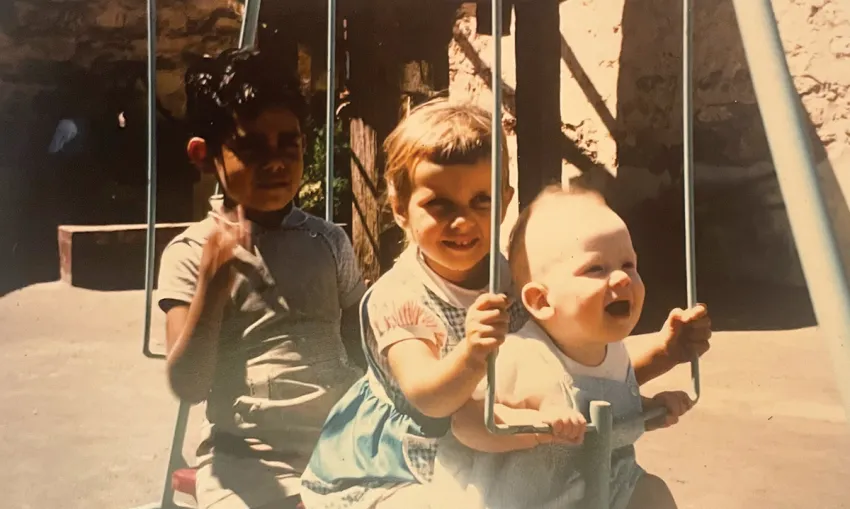
She discovered the power of words and her talent for writing in her 30s and in the unlikely place of drug and alcohol rehabilitation in the Adelaide Hills.
Journaling was part of the therapy process and Ali began to pour her heart and soul onto the pages, reflecting the anger and confusion from a life lived between two worlds — black and white.
“The rehab encouraged us to look in the mirror,” Ali says. “That’s the first time I’d looked deep into my eyes. It was very hard – I think you cross a line to a deeper level of honesty than you’ve ever known, and it was the start of a very personal journey to self-honesty.”
After attending the 2007 NT Writers Festival, Ali, a proud Yankunytjatjara woman, was encouraged by other Indigenous writers to send her work to The Australian Poetry Centre.
“They had an annual new poet series competition, and I was chosen as one of the new poets in 2009 with my first publication little bit long time,” Ali says.
That led to Ali releasing several books including her verse novel Ruby Moonlight in 2012 which won the inaugural kuril dhagun National Manuscript Editing Award and the 2013 NSW Premier’s Literary Award for Poetry and Book of the Year.
Her memoir Too Afraid to Cry was published in 2013, and another collection of poems, Inside My Mother, was published a couple of years later.
Ali took a break from writing for several years before releasing she is the earth in 2023, which was awarded the New South Wales Premier’s Award for Book of the Year and the Indigenous Writers’ Prize in May this year.
Page by page, word by word, each of Ali’s pieces reflects the grief, alienation, hurt and healing of her life and the lives of all the Stolen Generations.
Ali was forcibly removed from her mother, Audrey Kinnear (nee Cobby) in 1963 after being born at the Kate Cocks Memorial Babies’ Home in the beachside suburb of Brighton.
It is a shocking truth that’s hard to comprehend as Ali shows off a black and white photo of her mother in her nursing uniform – holding two babies.
You might like

Audrey trained as a registered nurse and became the first Indigenous nursing sister at Port Augusta Hospital. She cared for hundreds of babies over her career. She married Laurie Kinnear and had two more children, Patrick and Lisa, who grew up with their mum.
Audrey was also the first Aboriginal entrant in the Miss South Australia Quest, says Ali, showing off another beautiful photo of her mother in a hat, dress and white gloves.
“She was a remarkable woman who dedicated her entire life to Aboriginal health and reconciliation,” Ali says. “She was a fierce advocate and activist who set up various Aboriginal organisations, together with Aunty Lowitja (O’Donoghue) and others.”
Ali was raised by her adoptive parents Clarrie and Frieda Eckermann who were loving, well-meaning people.
The couple had three other adopted children, an older son Christopher, a younger son James, a younger daughter, Karen, as well as a foster boy, Michael, who all lived on the family farm in Hart in the state’s Mid North.
But racism was never far away. Ali remembers going to the dentist as a teenager and being told she didn’t have strong teeth because her mother was a drinker.
“I was told by some that my mother was a park drinker, and that she didn’t want me,” Ali says. “And that my family would be hopeless, and that Aboriginal people were just hopeless. This was the 1970s and that’s how most Australians thought about Aboriginal people.
“When I finally found my mother when I was 34 years old, I realised that most of my life was a lie.”
Ali speaks lovingly of her adoptive parents who did their best to create a happy home. Clarrie was a gentle, quiet bloke who was fond of birds: “I think he could talk to birds”, Ali says. “And Mum could do anything, she was remarkable with all the cooking and the farm work and sewing. She was a happy person.”
But Ali’s childhood happiness was shattered by two traumatic incidents that changed everything. She was abused by a family friend when she was only seven years old, which she says, “broke my trust in all things good”. Then in a terrible farm accident Ali was run over by a ute, shattering her leg and resulting in weeks at the Adelaide Children’s Hospital.
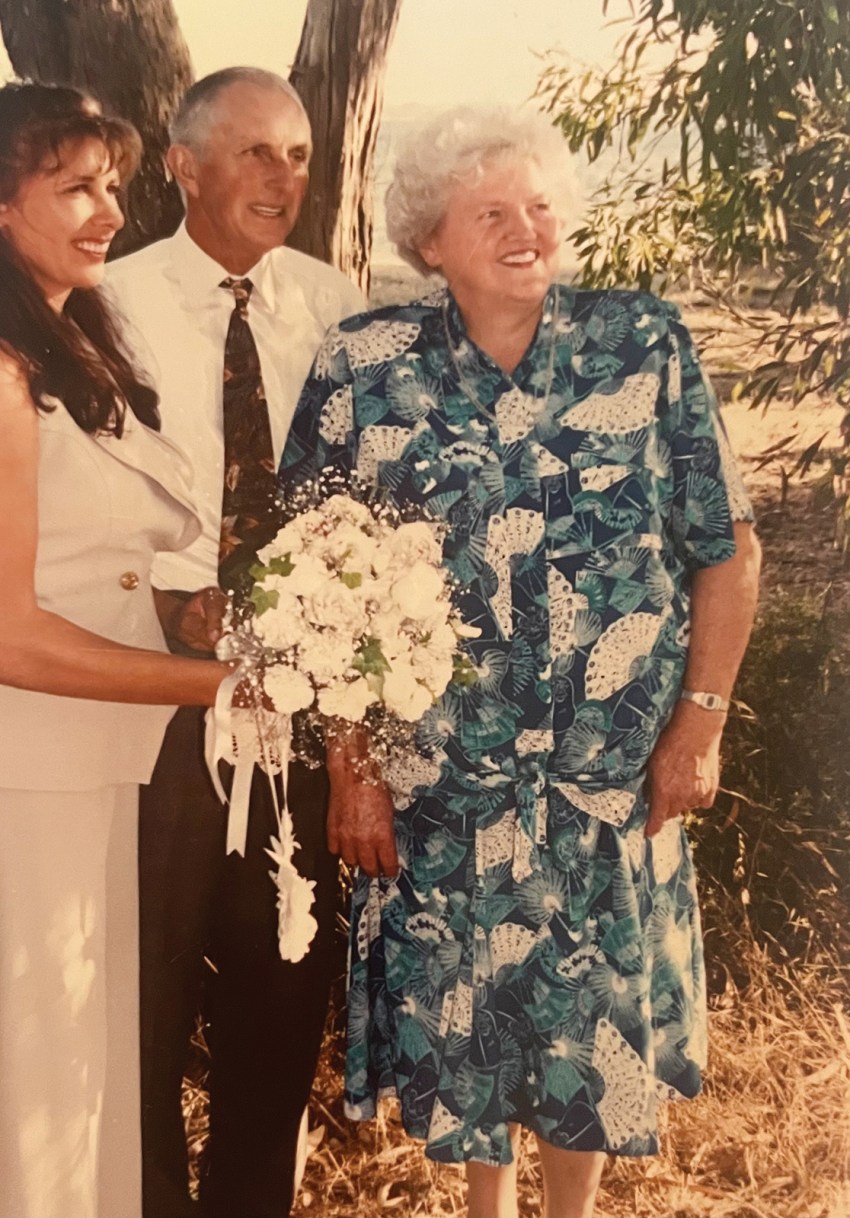
“I was sent off to Adelaide for many weeks and I had never been on my own before,” she says. “The nurse got sick of brushing my hair so she cut it all off.
“Mum and Dad and the kids came to see me every Sunday after church, and the rest of the time I was just scared shitless.
“I was still very young and I believed everything we’d been taught in the Bible. But I think maybe this was the first hint of my Aboriginality. The doctors and nurses would come and talk around me and I remember it was a different way of being described.
“I always remember Dad’s brother Uncle Ray used to say for the rest of his life, ‘you were such a happy girl and we never knew what happened, but you had changed when you came back from hospital’.”
Ali says her self-esteem began to plummet during her years at Clare High School.
She met other Aboriginal children for the first time at school and noticed they were living with their biological parents.
“Without really making sense of it all, I was just getting more confused, and racism made me trust people even less,” she says.
“There had been no talk of my biological parents by Mum and Dad. We were always told that we were special, and that we were very loved, and at a certain stage they didn’t deny that Christopher and I were Aboriginal.
“I don’t know how it infused in us, this kind of second-hand citizen idea. I felt like high school was not a place of nurture.”
Ali was eventually expelled from high school for breaking up what she describes as a racist incident. Her best ally from high school was her first Aboriginal friend, Leanne “Mouse” Brodie and together they ran away with their boyfriends to work on the Nullarbor and lived in a place called Ooldea.
Ali’s partner was a violent man and when she finally found the courage to leave and return to her parents, she discovered she was pregnant.
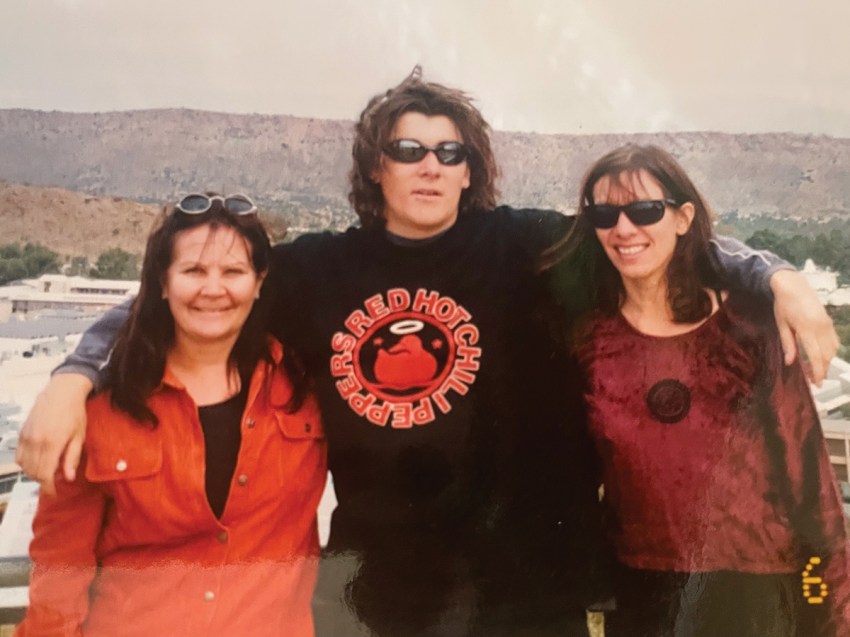
She says the local “fire and brimstone pastor” convinced her parents that Ali should put the baby up for adoption. Like her mother before her, Ali’s baby was forcibly removed. “That seemed to be the only dialogue,” she says.
“All I remember is the back of the person carrying my son out of the room. I never got to hold him. Just like my mother before me, we never got to share a lullaby or have a first birthday, first smile, first word, first step; all those memories, they’re the things that are stolen which cannot be replaced. I think there’s a time in trauma where you are just frozen inside.”
So began years of moving around the country as Ali tried to outrun her anguish. Her search for place and purpose took her across the country — the Coorong, Alice Springs, Katherine, Darwin, the Simpson Desert. She worked as a wild camel catcher, landscape gardener and construction worker, she cleaned motels, worked in the Aboriginal community of Yuendumu and as part of a road gang in the Tanami desert.
She yearned for wide open spaces, drawn to the vastness and connection to country that she had no idea was woven into her DNA. While the locations changed — Ali’s addiction to drugs and alcohol to mask her pain did not.
“I remember when I was living in Alice Springs, I saw a traditional Indigenous father playing with his young children,” she says. “I just cried and cried knowing that everything we’d been told was absolute bullshit.
“Our parents did love us. The laughter that filled the air when I watched that man with his children — it was a pivotal point for me. We should have been with our families.”
It was while working at the Tindal RAAF base in Katherine that Ali met Dave and they were happily married for a time. But the loss of their first baby to miscarriage proved too much.
“I realise now neither of us knew how to grieve,” Ali says.
The marriage ended and Ali returned to live with her mother, now living in the Barossa Valley at Greenock.
Lost and broken, Ali has a stark memory of walking around a park and imagining herself “hanging from every tree”. That’s when her mother Frieda took her daughter to rehab.
“Mum never shut the door on me and I gave her a pretty hard time,” Ali says. “Mum and Dad were loving, pious people. They did their best but society lied to them too. I’m sure they had no idea what was going on with all these Aboriginal children being taken away from their parents.”
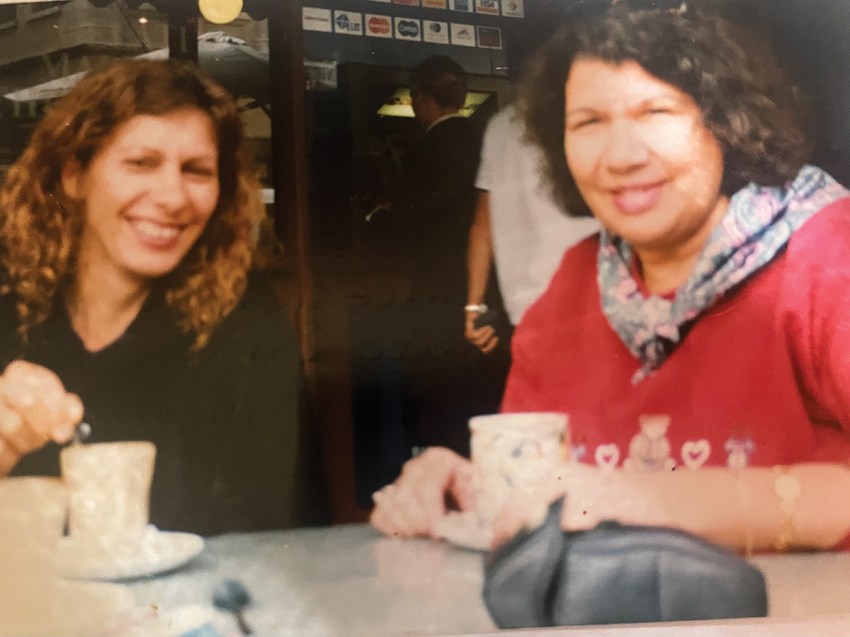
Ali stayed in rehab for six months, so beginning her journey on the road to healing and wholeness.
“That’s when I realised that it wasn’t my character, it was the series of all these things that was impacting on me,” she says. “That was a big realisation.
Subscribe for updates
“It was a blessing that I had hit rock bottom and I had survived, so there was only one direction remaining and that was growth and upwards. And that took many years. But I walked out of rehab firm in the task of finding my mother.”
Ali had attempted to find her birth mother at the age of 18 without luck. It was only after the Bringing Them Home report was released in 1997 — which investigated the forced removal of Indigenous children from their families – that Ali was able to discover her mother’s maiden name.
She recalls her first meeting with Audrey at a reunion at Canberra Airport.
“I remember walking across the terminal,” she says. “There was an old floral pattern on the carpeted floor, and I felt like I was wading through swamp-like water up to my thighs, and I remember how thick the air was. I saw her and, as I got closer, it was the first time I had ever seen myself. We had the same eyes.”
It was an emotional time and Ali stayed with her mother for a couple of weeks catching up on a lifetime of memories and history.
Audrey had not remained with Ali’s biological father but Ali did meet him for one hour before he died in 2017.
“That was another hole in my heart filled,” she says. Ali and Audrey caught up many times over the next 10 years before Audrey sadly passed away from Alzheimer’s disease.
“The most important thing that Mum told me — and time stood still when I heard this – was when I asked her where she was born. She was born where I had run to all those years ago, Ooldea.
“That had a huge effect on me — that cemented me accepting my Aboriginality because I knew that our land loved me so much and I knew why I had this love for the desert. We are desert people.
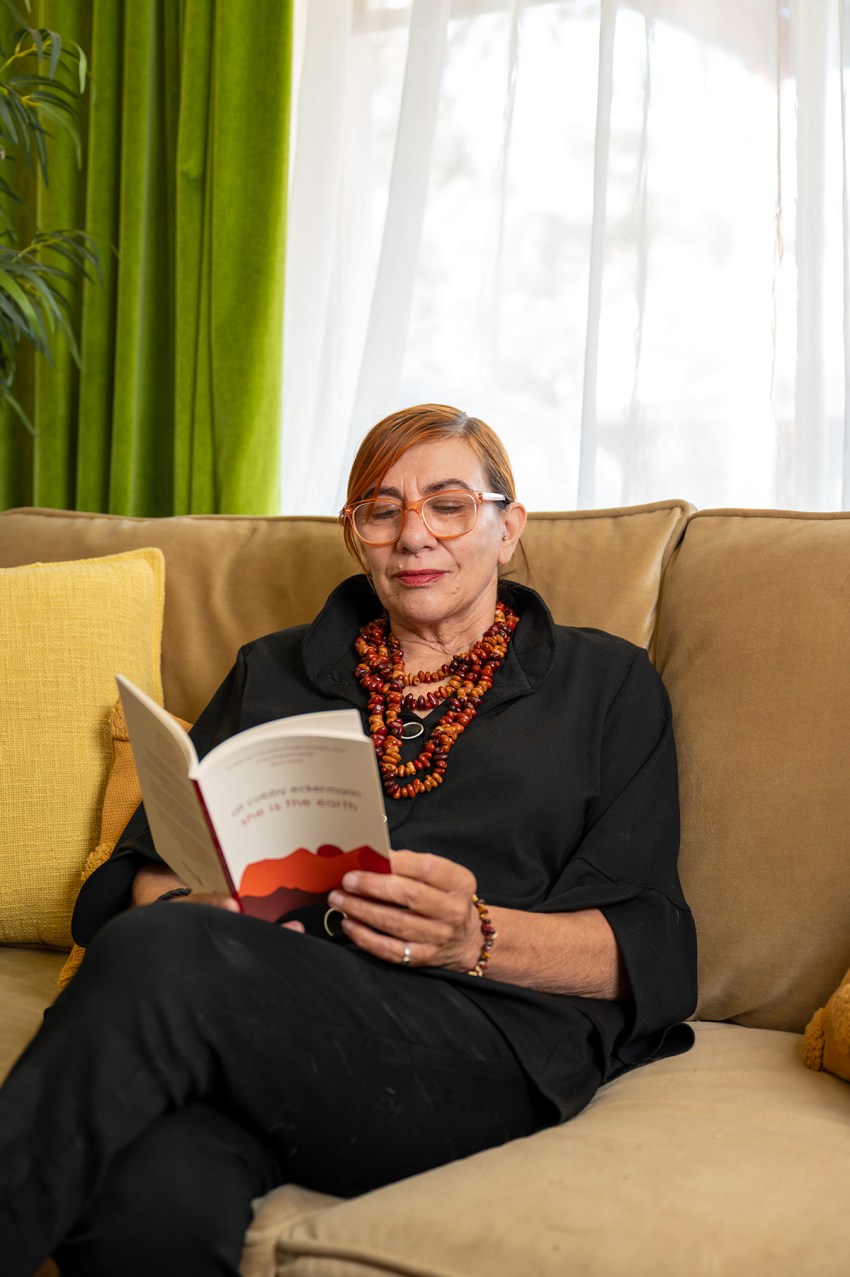
“That was just the most important thing, the rest didn’t matter, the rest was all the shifting and shaping by all these other interfering people who think they know what’s best for us. But that could not be changed, Mum’s birthplace and that I had run there. It took away all the badness of those decisions, that maybe there was something bigger at play. Of all the places on this huge island continent, I had run to my mother’s birthplace.”
Four years after meeting her mother, Ali began the search for her son. She discovered his name was Tjoni and he too lived in Greenock. Ali was living in Alice Springs at the time and mother and son were reunited at the local airport.
“I could hardly stand,” Ali says. “I remember looking out the window watching for the plane and twice an air hostess came over and asked, ‘are you okay?’.” Ali has since stayed in touch with Tjoni, who has two sons, Rivah, now 13, and Jett, seven.
“I invest in my grandsons and create memories with them,”
she says.
Ali also raised her niece Audrey, who was the daughter of her cousin — their mothers were sisters. Finally, some of the wounds of the past were beginning to heal through Ali’s role as a mother and grandmother.
In 2001, the same year Ali was reunited with Tjoni, she signed up for a creative writing course at the Bachelor Institute of Indigenous Tertiary Education in Alice Springs because “I knew it was going to be a big year of emotions”.
“I figured it would be a good place for me to be creative and try to stay as safe as I could in this emotional outpouring I was expecting.”
Ali had also studied at Tauondi Aboriginal Community College in Port Adelaide from 1997 to 1999.
“Suddenly I was in a room with people sharing similar histories and feelings,” she says. “Those two colleges were places where assimilation didn’t exist. There, you were given a set of tools to learn who you were in a creative way.”
Ali’s search for identity also led her back to the desert, to the core of her culture, where she spent years sitting in the red dirt with the Elders: holding hands, laughing, crying, travelling across country and learning.
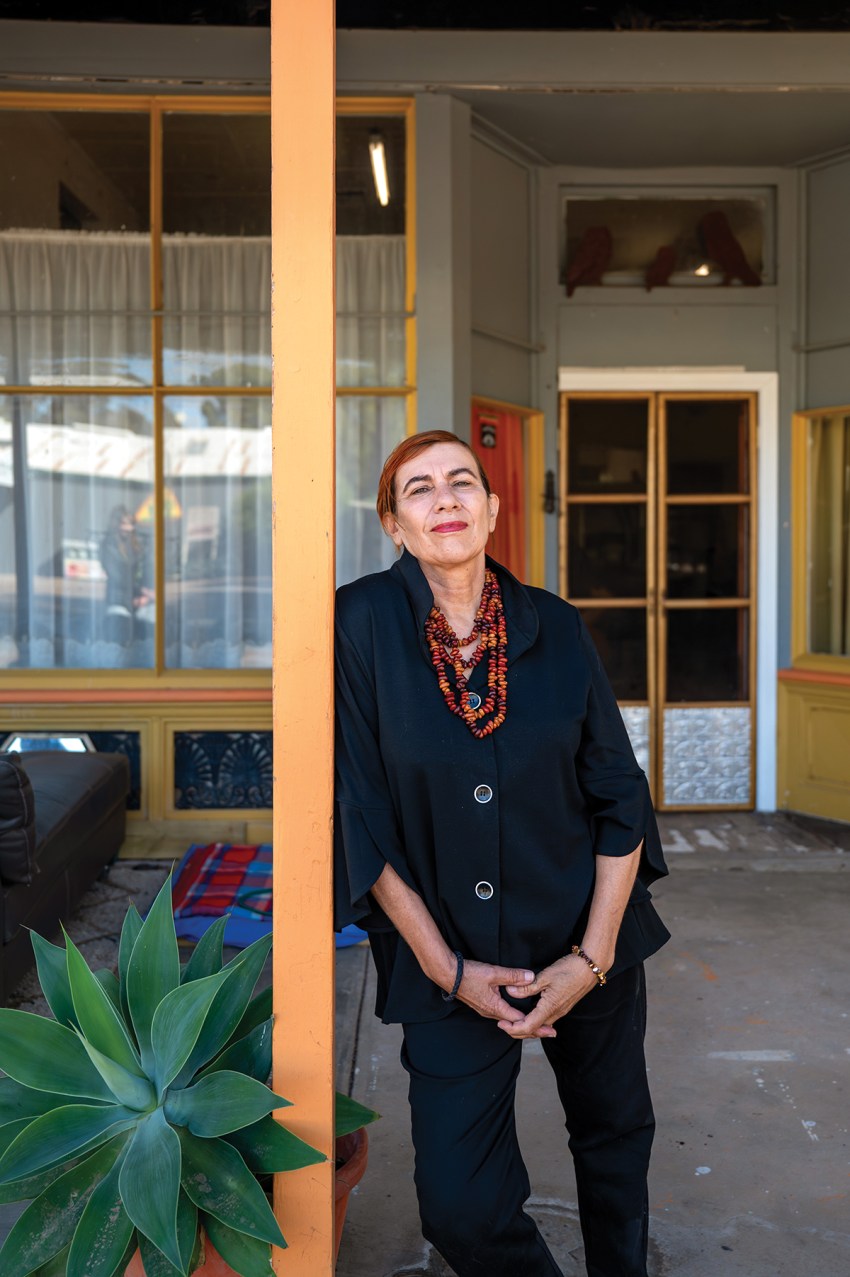
“Culture was the missing key for me to reach the beauty of my life,” she says.
“My time in the desert was enhanced by spending a lot of time with the old people – I realise now they saw something in me and they were guiding me towards the poetry, towards what I might term as ‘healing poetry’.
“The loving care of those old people who spent so much time with me really helped me heal – they were traditional healers taking out so much of the damage.
“I couldn’t speak language, but I watched and listened, and we held hands a lot – they removed a lot of rubbish from my body and my mind.”
Today, Ali lives in a converted general store in Koolunga, a tiny town 40 kilometres north of Clare. When SALIFE visits, Ali is sifting through old photographs, her dog Tjili curled up at her feet under the kitchen table.
Ali has lived in Koolunga on and off for 15 years – it’s her haven, a safe place to write. In the yard sits that old caravan Ali used to live in – it is her writing studio now.
For the past few years, Ali has also been the Arts and Cultural Facilitator at the Regional Council of Goyder in partnership with Country Arts SA based in Burra, providing another creative outlet and a way to return to the rural community where she was raised. She also established Australia’s first Aboriginal Writers’ Retreat at her home in 2012 with renewed plans to hold retreats and workshops in the future.
“So, with the stellar rise of my literature as overwhelming as it was, I looked for the good in it and I looked for the good in the people involved and realised there were ways I could use poetry to help other people,” Ali says. “I have made some wonderful international friends whom I call family.”
One of those friends is world famous feminist writer and political activist Gloria Steinem who invited Ali to her home in New York when she was there to launch her memoir at The Bowery in Manhattan in 2018.
“Gloria was interested in my writing, and I will say she felt like a big sister. She gifted me with some of her books and I treasure those very much.”

But the awards and the famous encounters pale in comparison with Ali’s reconnection with her mother and son.
“It’s hard to remind people of that without sounding ungrateful because I’m so grateful but meeting Mum and looking across the airport waiting for my son to return to me, that’s what is truly important,” she says. “I want to use my writing to remind people of what we’ve lost as stolen people.”
Ali says she’d like her legacy to help raise awareness of the continuing trauma of removing Indigenous children from their families. “Why is so much money spent on removal and less is spent on helping people who are struggling in a world that everyone knows is unfair,” she says.
“I want this story, my story, to be an empowering one particularly for women, which is what I hope for with my poetry.
“I would like to be one part of that road that has been built by so many Aboriginal leaders and women before me.”
In October this year, Ali will release her new collection of poems titled Because the Air is Always Listening, and says she is in her happiest phase of life now.
“It has been quite a journey, but I am grateful for the recognition, and I remember the words of those old people in the desert who told me, ‘you’re good now girl, go get the world’. That’s what I’m doing.
“I’m trying to de-assimilate my feelings and build my truth-telling one poem at a time with as much kindness as I can to tell a very hard truth, because despite everything and despite all this trauma, we are still kind, loving people.
“The Yale award taught me the importance of holding pride in my eyes and I hadn’t known how to do that before, I had held it in my heart, but now it’s in my eyes.”
If this article has raised any issues, 24-hour help is available. 13YARN is run by Aboriginal and Torres Strait Islander people. Call 13 92 76 or visit 13yarn.org.au.
This article first appeared in the June 2024 issue of SALIFE magazine.




